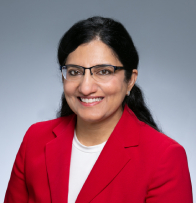
Can you please explain what cardio-oncology is?
Cardio-oncology focuses on assessing the cardiovascular health of patients with cancer before treatment to optimize the management of pre-existing cardiac diseases and ultimately, decrease cardiovascular complications during and after cancer therapy. Northside Hospital in collaboration with the Northside Hospital Cancer Institute and the Northside Hospital Heart Institute established a cardio-oncology program this year. The establishment of this program is a keystone step in achieving the overall goal of an integrated and comprehensive care model involving a multidisciplinary team of providers, which is necessary to achieve better outcomes for our patients and survivors.
What are some of the common cardiovascular side effects related to current cancer therapies?
Cardiovascular complications of cancer therapy may include but are not limited to myocardial dysfunction/ heart failure, coronary artery disease, valvular disease and arrhythmias. Certain arrhythmias can be drug-induced, which may cause electrocardiogram abnormalities like QT-prolongation, fluid around the heart (pericardial effusion) and elevated blood pressure.
Do certain treatment therapies or medications put a survivor more at risk for cardiovascular side effects?
One-third of cancer survivors die from cardiovascular disease as per the survivorship data. Survivors who have received a special group of cancer drugs like anthracycline and/or radiotherapy should be engaged in a cardiovascular protective surveillance program, but in reality, every cancer survivor should be engaged in this type of program.
How can survivors optimize their cardiac health?
By being proactive and engaging in cardiovascular risk reduction strategies, such as maintaining a healthy weight, getting regular exercise and managing stress. Additionally, survivors should work with their primary care providers, oncologists and cardio-oncologists to optimize their cardiac health.

